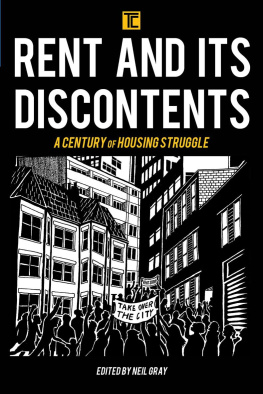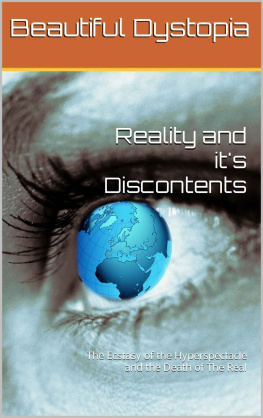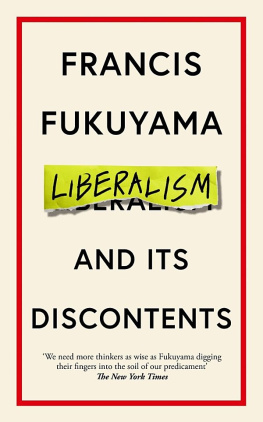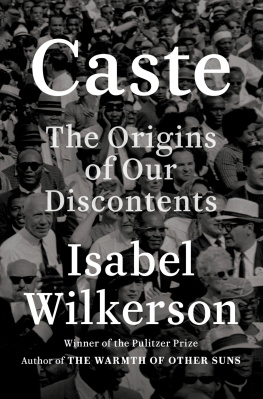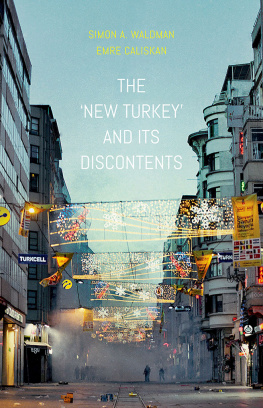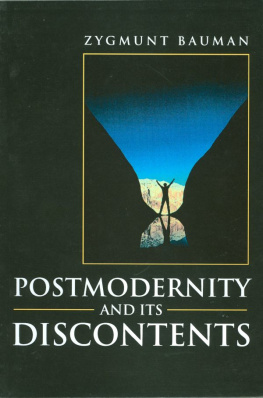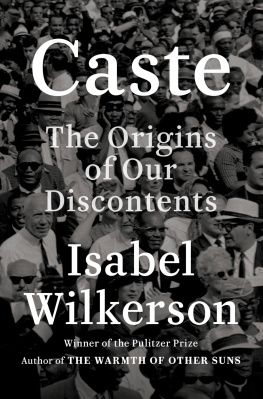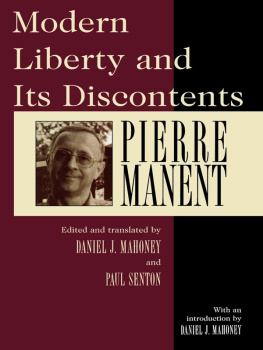Diversity and Its Discontents
Diversity and Its Discontents
CULTURAL CONFLICT AND COMMON GROUND IN CONTEMPORARY AMERICAN SOCIETY
EDITED BY NEIL J. SMELSER AND JEFFREY C. ALEXANDER
PRINCETON UNIVERSITY PRESS
PRINCETON, NEW JERSEY
Copyright 1999 by Princeton University Press
Published by Princeton University Press, 41 William Street, Princeton, New Jersey 08540
In the United Kingdom: Princeton University Press, Chichester, West Sussex
All Rights Reserved
Library of Congress Cataloging-in-Publication Data
Diversity and its discontents: cultural conflict and common ground in contemporary American society / edited by Neil J. Smelser and Jeffrey C. Alexander.
p. cm.
Includes bibliographical references and index.
ISBN 0-691-00436-6 (cloth: alk. paper). ISBN 0-691-00437-4
eISBN: 978-0-691-22833-4
(pbk.: alk. paper)
1. Pluralism (Social sciences)United States. 2. Culture conflictUnited States. 3. Social valuesUnited States. 4. PostmodernismSocial aspectsUnited States. 5. United StatesSocial conditions1980 I. Smelser, Neil J. II. Alexander, Jeffrey C.
E184.A1D57 1999
303.48'2'0973dc21 98-31391
CIP
http://pup.princeton.edu
R0
CONTRIBUTORS
Seyla Benhabib is Professor of Government at Harvard University and Chair of the Committee for the Degree on Social Studies. She is also Senior Research fellow at the Center for European Studies. She is the author of Situating the Self: Gender, Community and Postmodernism in Contemporary Ethics (1992), and The Reluctant Modernism of Hannah Arendt (1996).
Jean L. Cohen is Professor of Political Science at Columbia University. She is the author of Class and Civil Society: The Limits of Marxian Critical Theory and co-author of Civil Society and Political Theory.
Reynolds Farley is Vice President at the Russell Sage Foundation.
Claude S. Fischer is Professor of Sociology at the University of California, Berkeley. His recent books include America Calling: A Social History of the Telephone to 1940 (1992) and, as senior author, Inequality by Design: Cracking the Bell Curve Myth (1996). He is currently writing a book on American social history.
Frank F. Furstenberg, Jr. is Zellerbach Family Chair of Sociology at the University of Pennsylvania where he is also an Associate in the Population Studies Center. His most recent book, Managing to Make It: Urban Families and Adolescent Success, will be published this year by the University of Chicago Press.
John Higham is Professor of History Emeritus at The Johns Hopkins University and a former President of the Organization of American Historians. Most recently he edited and co-authored Civil Rights and Social Wrongs: Black-White Relations Since World War II (1997).
David A. Hollinger is Chancellors Professor of History at the University of California, Berkeley. His two most recent books are Science, Jews, and Secular Culture (Princeton University Press, 1996) and Postethnic America: Beyond Multiculturalism (Basic Books, 1995).
Steven Seidman is Professor of Sociology at the State University of New York at Albany. He is the author of, among other books, Embattled Eros: Sexual Politics and Ethics in Contemporary America, Contested Knowledge, and Difference Troubles: Queering Social Theory and Sexual Politics.
Marta Tienda is Director, Office of Population Research and Professor of Sociology and Public Affairs at Princeton University. She is co-author of The Hispanic Population of the United States (Russell Sage Foundation, 1987).
David Tyack is Vida Jacks Professor of Education and Professor of History at Stanford University.
R. Stephen Warner is Professor of Sociology at the University of Illinois at Chicago.
Robert Wuthnow is Gerhard R. Andlinger Professor of Sociology and Director of the Center for the Study of American Religion at Princeton University. He is the author of Poor Richards Principle: Recovering the American Dream Through the Moral Dimension of Work, Business, and Money.
Viviana A. Zelizer is Professor of Sociology at Princeton University. She is the author of Morals and Markets: The Development of Life Insurance in the United States, Pricing the Priceless Child: The Changing Social Value of Children, and The Social Meaning of Money.
PART ONE
Introduction: Sources of Cultural Conflict
CHAPTER ONE
Introduction: The Ideological Discourse of Cultural Discontent
PARADOXES, REALITIES, AND ALTERNATIVE WAYS OF THINKING
JEFFREY C. ALEXANDER AND NEIL J. SMELSER
POLITICAL and academic arguments about social justice over the last decadeand the controversies they ignitedhave shown a notably cultural face. The language is revealing: moral majority, family values, cultural pluralism, cultural diversity, multiculturalism, and culture wars. Wuthnow ( in this vol.) refers to this development as a discourse of discontent. It reaches deeply into American social structure, identifying crises in family, marriage, religion, education, and race relations. This discourse also draws attention to shifts in social behavior and social process, pointing to public displays of homosexuality and cultural difference, massive new waves of legal and illegal immigration, and economic and cultural globalization. Moreover, this growing chorus of complaint has struck a chord in American public life because it meshes with cultural themes that carry great symbolic weight.
The core of the complaint concerns common values in American society. Critics at both ends of the political spectrum claim that such values are disappearing or have disappeared. Conservatives complain that the solidarity of American society has become fragmented, that the very fabric of society has been ruptured. They claim that unprecedented developments are undermining the cultural homogeneity on which a democratic society depends. In response, conservatives assert, traditional values must be revitalized. For their part, radical critics celebrate the end of common cultural values. Arguing that diversity and difference constitute the high moral goods of society, they view any attempt to connect this diversity to shared values oppressive. In the academy, this leftist position has contributed to the appearance and vitality of cultural studies, a new field challenging traditional disciplinary authority. Originating in British neo-Marxism and highly influenced by Foucault, cultural studies stress hegemony rather than common culture, and domination rather than civil solidarity. It has been in centers of cultural studies that the more radical programs in race, gender, and ethnic studies have been launched.
A glance at earlier twentieth-century periods of intense, polarized cultural conflict highlights not only the uniqueness of the contemporary cultural emphasis but also the unique polarizing nature of this rhetoric.
In the 1930s, American society experienced intense and divisive social conflict. Because this crisis was triggered by the collapse of the American economy and its consequent large-scale unemployment and poverty, the dominant frames of discourse in that era were those of economic and political stability, the viability of capitalism as compared with socialist alternatives, and the possibilities of achieving social justice through structural reforms. Although cultural themes certainly were not absent, the integrity of American cultural values did not enter significantly into the conflicting social and political dialogues of the time. Indeed, as many have since pointed out, the popular front ideology espoused by the left in the 1930s was as American as apple pie.



